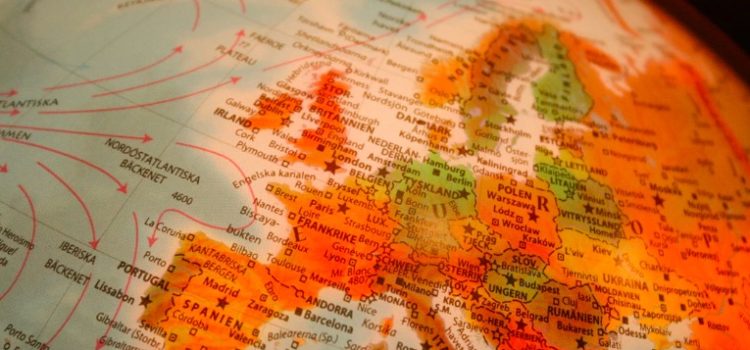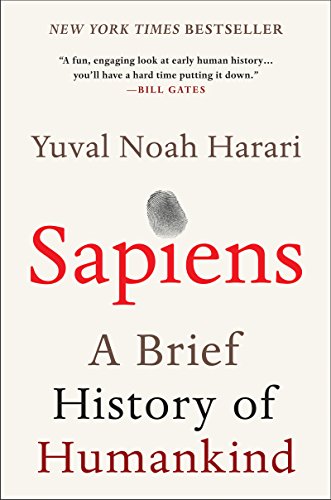

This article is an excerpt from the Shortform summary of "Sapiens: A Brief History of Humankind" by Yuval Noah Harari. Shortform has the world's best summaries of books you should be reading.
Like this article? Sign up for a free trial here .
We tend to think that “imperialism” is a bad word, but were there any benefits of imperialism? What are the legacies of imperialism today?
The benefits of imperialism included the shrinking of the world and the dissolution of cultural divides. Among the many tragedies of European empires, the Age of Imperialism also connected disparate nations and cultures.
We’ll cover the surprising benefits of imperialism and how they’ve shaped our world today.
Critiques of Empire & the Benefits of Imperialism
In modern times, “empire” and “imperialism” are bad words. They’re accused of destroying and exploiting local resources and ways of life. The establishment and maintenance of many of the most successful empires did involve destruction and violence, including war, enslavement, and genocide. But as we’ll see throughout this chapter, empires have shaped the world in positive ways as well, and in fact, much of our human culture is based on the legacies of empire. Whether we like it or not, there were benefits of imperialism.
Benevolent Imperialism
Sapiens have evolved the survival instinct to distinguish “us” from “them.” For example, the name of Sudan’s Dinka people means “people,” as if members of other tribes aren’t even human. Similarly, the name of Sudan’s Nuer group means “original people” and the name of the Yupik people in Alaska and Siberia means “real people.” We’re programmed to care only about “us,” ourselves and those immediately around us, who share our language, beliefs, and customs.
It’s surprising, then, that since Cyrus the Great of Persia established the first Persian Empire around 550 BC, kings and emperors have claimed to conquer territories and people for their own good. And there was some benefit of imperialism for conquered people—uniting different nations were under one government facilitated the dissemination of ideas, technology, and goods.
It was to the advantage of the ruler to encourage this spread of ideas and goods. For one thing, it made ruling easier. It’s hard to run an empire in which every territory has its own language, currency, and laws. Encouraging trade and the transmission of ideas helped standardize government policies and structures.
It also justified their rule. If kings spread what they saw as their own culture’s superior language, currency, and laws, they could feel they were doing so for the benefit of all subjects. And whether they were planning cities, standardizing measures, or imposing taxes, rulers and their administrations genuinely believed they were working for the good of all subjects. This led to a few benefits of imperialism.
Benevolent Rulers
This has happened throughout history. Cyrus the Great wanted to bring all the benefits of being Persian subjects to new cultures while letting them maintain their traditions. He famously ordered that exiled Jews be allowed to return to their homeland and rebuild their temple and even gave them the money to do so. Similarly, Chinese emperors believed they were educating their barbarian neighbors. Muslim caliphs sought to share Muhammad’s revelation. Brits sought to introduce the world to liberalism and free trade. And Americans believe it’s their moral duty to establish democracy and the concept of human rights in developing countries, even if they have to do it through war.
In a world in which we’re programmed to be xenophobic, these rulers attempted to be inclusive and unite different people under one political system. This may have resulted in benefits of imperialism.
The Dissolution of Us versus Them
One major benefits of imperialism was the dissolution of “us” versus “them.” Imperialism began to dissolve cultural divides in two ways:
Way #1: After hundreds of years, the conquered people had so assimilated that there was no trace left of their original culture.
For example, by the time the Roman Empire fell in 476 AD, it had absorbed the Numantians, Samnites, Umbrians, and Etruscans, among other groups. These groups didn’t gain independence with the end of Roman rule because they no longer existed. Everyone who could trace their ancestry back to these groups now spoke Latin, worshipped Roman gods, and lived just as their fellow Romans did. They were Roman now, not Umbrian or Etruscan.
Way #2: Because of their inclusivity and tolerance of conquered cultures, rulers often adopted and spread norms, beliefs, and traditions from the people they conquered.
In this way, empires became hybrids of the civilizations they conquered. For example, imperial Roman culture “was Greek almost as much as Roman,” and the Abbasid culture was a hybrid of Greek, Arab, and Persian cultures.
Although tolerance and dissolving antagonism are benefits of imperialism, the process often eradicated local cultures or altered them beyond recognition, and it was often difficult for conquered subjects to adapt to the hybrid culture.
The Legacies of Empire
Today, the world is smaller and more united because of the dissolving of past cultures, and the legacies of empires are innumerable. As opposed to the thousands of languages spoken by our ancestors, today, most of us speak an imperial language. Many native groups of European colonies embraced the Western values of self-determinism and human rights and used these values against their Western masters in their fights against colonial rule. (Many don’t see this as a benefit of imperialism.) There’s no going back to a “pure” culture, one untainted by imperialism. Its legacies are everywhere, and to somehow extract these legacies would by to destroy every contemporary culture.
As the world gets smaller and smaller, we’re moving toward a single global empire. We’re becoming decreasingly nationalistic, and governments have become more and more interested in protecting human rights around the world rather than just in their own countries. This is a possible benefit of imperialism.
Today, countries can’t function independently. The actions and values of other countries affect our economic policies, our social policies, and our ability to wage wars. We’re affected by global markets, international human rights organizations, and NGOs. International issues such as global warming are increasing the need for a unified global community. No one country can function on its own.
———End of Preview———

Like what you just read? Read the rest of the world's best summary of "Sapiens" at Shortform . Learn the book's critical concepts in 20 minutes or less .
Here's what you'll find in our full Sapiens summary :
- How Sapiens outlived and outlasted the 8+ other human-like species on Earth
- The 3 critical revolutions in human existence that led to our domination of the planet
- How much of what powers our world today is really just a shared mass delusion
- What the future of humanity might look like






